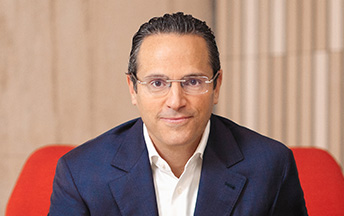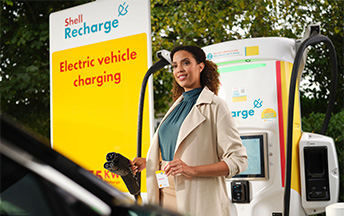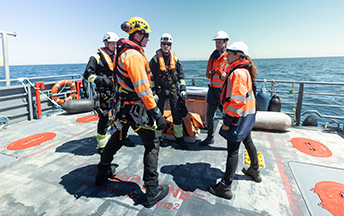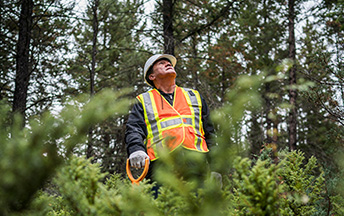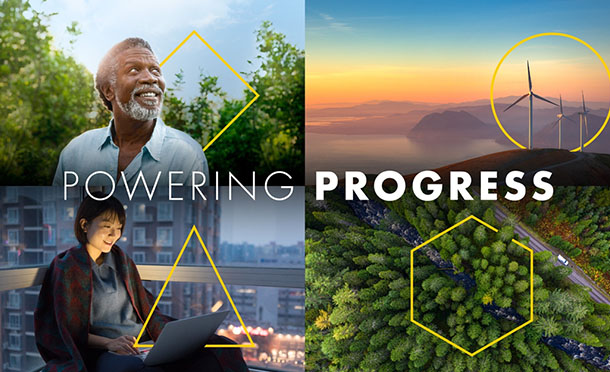Letter from the CEO
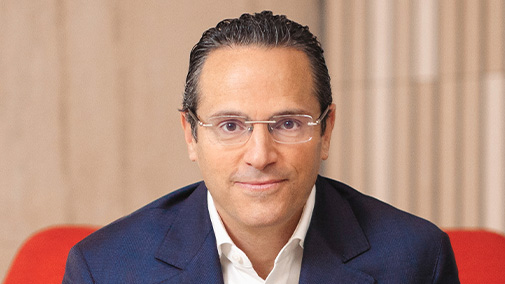
Chief Executive Officer
Russia’s invasion of Ukraine has caused huge suffering. It has also triggered instability in global energy markets and other sectors. Energy and food prices have risen, causing inflation to spiral in many countries.
Our first response to the invasion was to safeguard our staff in Ukraine and support our people in Russia. We also announced our intention to withdraw from our Russian oil and gas activities in a phased manner, aligned with government guidance. We worked with organisations in Ukraine and neighbouring countries to provide humanitarian aid. By the end of 2022, we had donated $74 million to help the people of Ukraine.
As the war caused disruption to energy supplies, we worked to ensure that people received the energy they need to keep economies running and electricity flowing. This included delivering a record 194 cargoes of liquefied natural gas (LNG) to Europe in 2022 – almost five times our usual average. I am proud of the way Shell staff in the UK and Norway, among many others, also stepped up to produce the oil and gas Europe needs.
We provided help for those struggling with the rising cost of living. In the UK, for example, we announced a £50 million package to support vulnerable energy consumers, and donated millions of pounds to charities to help households pay their energy bills. And in the Netherlands, we are contributing to a government-backed emergency fund for the same purpose.
The recent devastating earthquakes in Turkey and Syria affected many Shell people and their families, although mercifully no staff were injured. Shell has supported relief efforts with the provision of fuel, and chemicals to make foam mattresses and hand sanitiser. We have also made aid donations worth several million dollars, including matching donations made by our staff around the world.
Balanced transition
The energy and cost of living crises have highlighted the need for a balanced energy transition: one in which the world achieves net-zero emissions, while still providing a secure and affordable supply of energy. We expect that LNG will play an important role in such a transition. It provides a critical supply of energy today, and it produces fewer greenhouse gas emissions than coal when used to generate electricity.
In 2022, we made significant investments to increase production of LNG and reduce emissions from the process. We joined two major projects in Qatar, for example. Both will use carbon capture and storage, helping us to offer customers LNG with a lower carbon footprint. We also took a final investment decision to develop the Rosmari-Marjoram gas project in Malaysia, which will be mainly powered by renewable energy.
Net-zero emissions
As we invest in the energy needed today, our target to become a net-zero emissions energy business by 2050 remains at the heart of our strategy. We are making good progress. By the end of 2022, we had reduced carbon emissions from our operations by 30% compared with 2016 on a net basis, more than halfway towards our target of a 50% reduction by 2030.
We have also made progress in supporting our customers in reducing their own emissions, with further investments in wind, solar, biofuels, hydrogen, electric vehicle charging, carbon capture and storage and nature-based solutions.
For example, we won bids with our partners to build four offshore wind farms in Europe and the USA, which together have the potential to generate 7.3 gigawatts of power. We acquired Indian solar developer Sprng Energy. And in 2023, we completed the acquisition of Nature Energy of Denmark, which is Europe’s biggest producer of renewable natural gas made from agricultural, industrial and household waste. In Nigeria, we acquired solar provider Daystar Power, which provides reliable power to commercial and industrial customers.
In total, around 41% of our annual spending on research and development goes on projects that contribute to decarbonisation.
Respecting nature
Powering Progress is also about respecting nature – the loss of our natural environment and climate change are interconnected and need to be tackled together. This was reinforced by both United Nations conferences on climate change (COP27) and biodiversity (COP15) in 2022.
Biodiversity, water, circular economy and waste, and air quality: these are the four areas we focus on in our commitments to respect nature.
For instance, we are working to help end plastic waste in the environment. By the end of 2022, more than 30% of Shell-owned service stations had eliminated unnecessary single-use plastic and almost 40% had completely removed single-use plastic bags.
In 2022, we announced plans to increase our global production of pyrolysis oil, made from hard-to-recycle plastics otherwise destined for landfill or incineration, by building a new pyrolysis oil upgrader in the Netherlands. Pyrolysis oil can replace traditional feedstock in our chemical plants.
Powering lives
Shell provides vital energy for homes, businesses and transport. Every year we generate jobs, revenues and taxes in the countries where we operate. In 2022, we employed around 93,000 people in more than 70 countries and spent about $41.5 billion on goods and services, 83% of which we purchased locally in the country of operation. Globally, we paid more than $13 billion to governments in taxes.
Our enterprise development programmes promote entrepreneurship, innovation and meaningful employment in our host countries. In 2022, Shell LiveWIRE trained around 2,685 people and helped create more than 2,170 jobs in 20 countries, while Shell StartUp Engine supported 50 start-ups in areas such as renewable energy and electric mobility.
While we know there is still much more to do, we are working to become one of the most diverse and inclusive organisations in the world. For example, almost one-third of our senior leadership and just under half of our graduate hires are women.
We respect human rights in our business and work hard to ensure that our joint-venture partners and supply chains follow the same principles.
We also continue to support the UN Global Compact’s corporate governance principles on human rights, environmental protection, anti-corruption and better labour practices.
Safety and our core values
Although we continue to make progress in safety across our operations and within our industry, we have not been able to eliminate fatal accidents involving Shell employees and contractors. I am saddened to report that two of our contractor colleagues died in 2022, one in Nigeria and one in Pakistan.
Finally, on a personal note, I am proud to be sharing with you this, my first Shell Sustainability Report as CEO. This report shows what we have achieved so far in our work to be a sustainable business. We aim to do this work responsibly, with discipline and at pace to make a positive difference.
Wael Sawan
Chief Executive Officer






